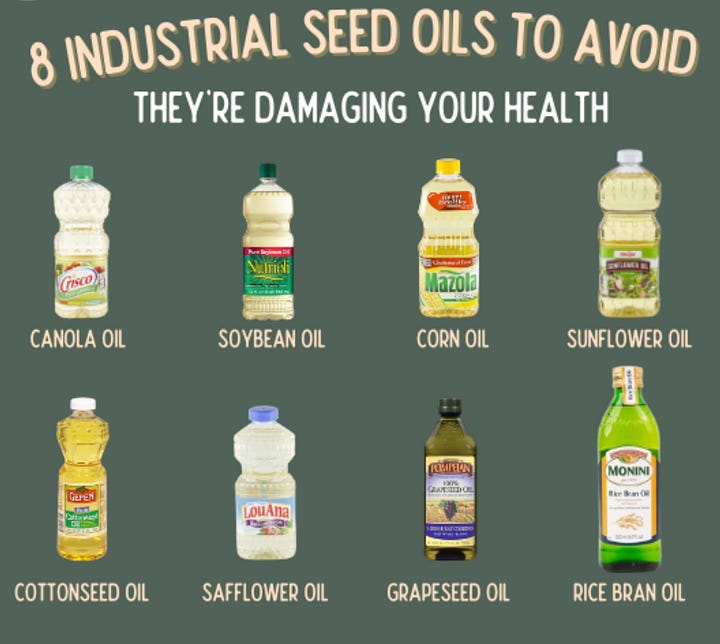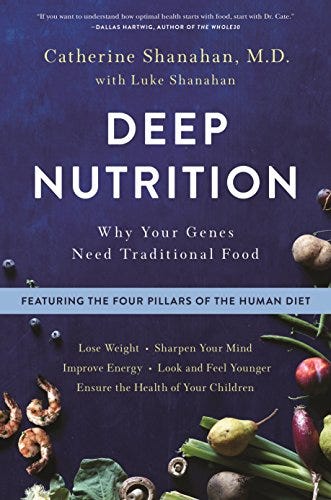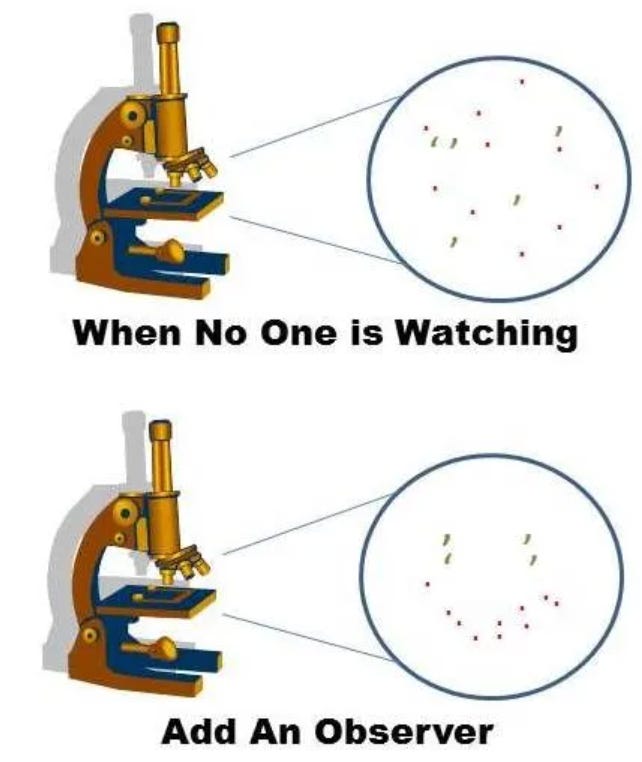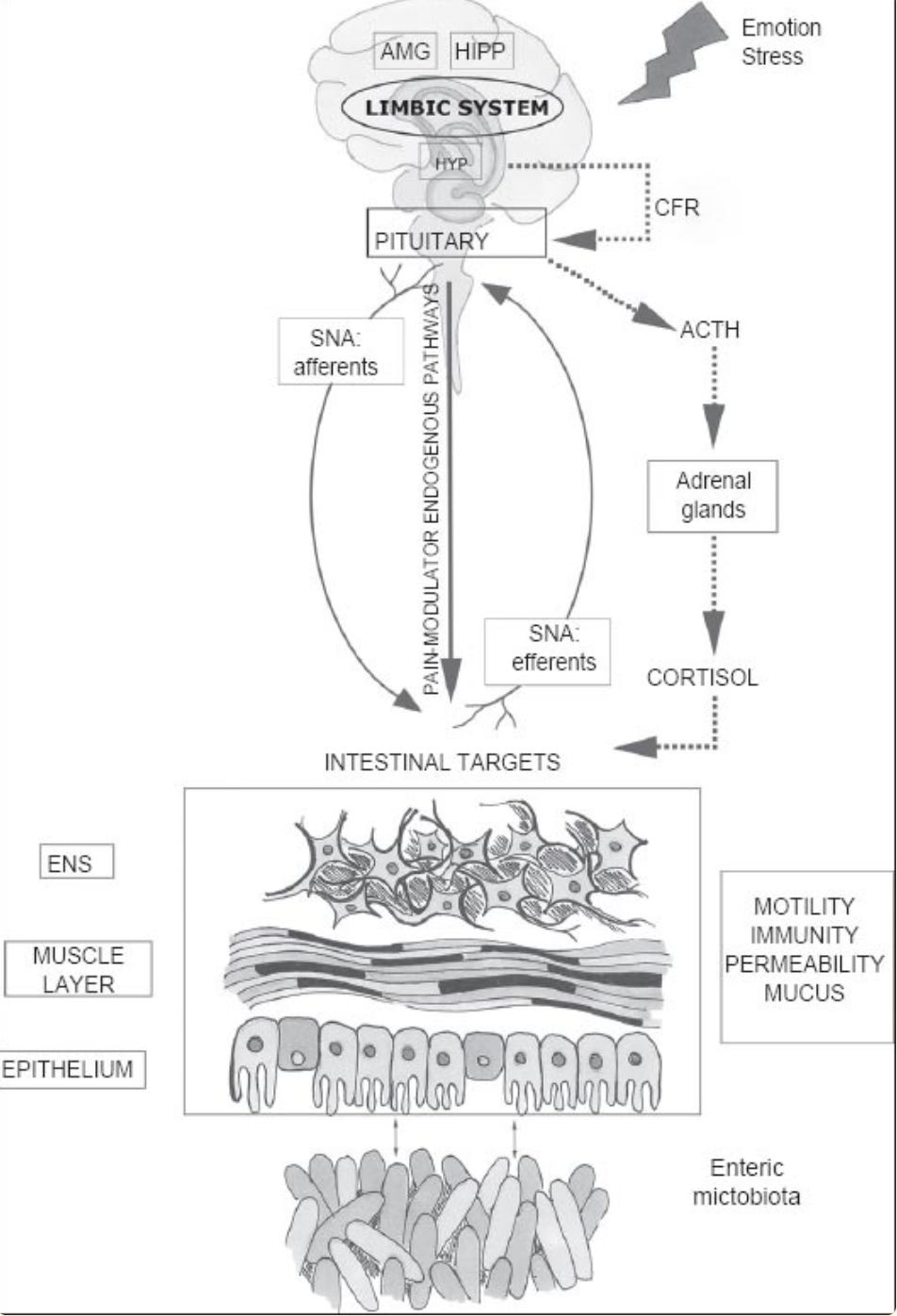You MUST track your food. Only for a little while.
Your taste buds and bodily systems are being weaponized, and your metabolic and mental health are suffering.
Social media is capitalizing on our primal need for acceptance and a sense of belonging, effectively weaponizing it against us.
Additionally, big food companies are prioritizing quantity over quality to appease government regulations while exploiting our brain's natural response to nourishing food in order to please us.
To reclaim autonomy over ourselves, it is imperative that we track both what goes into our bodies and how our bodies react to it. This self-awareness is key to regaining control over not only our physical but also our mental health.
THIS IS NOT MEDICAL ADVICE
Chips taste good because our brains are rewarding us with ‘happy chemicals’ to get us to eat more crunchy foods because it is mistaking Doritos for carrots and broccoli.
Sweets taste good because of the dopamine overdose induced by fueling ourselves for future physical tasks. Little does our brain know that (1) we don’t need that much fuel because we aren’t using our bodies to hunt and protect (2) we can get as much as we want on demand, so there’s no need to trigger us to binge.
We crave fried foods because the SAD (standard American diet) is deprived of the nutrients necessary for healthy metabolic + physical function, so your body forces you to fend for what it believes will satiate that deficiency.
Big food companies have a good rebuttal:
But we need to feed hundreds of millions of people! We HAVE to overuse the soil and deprive the food of nutrients… do you want them to be malnourished, STARVE AND DIE???"
Regarding malnourishment, most of us are malnourished; we are not deprived of calories but more so of the micronutrients that these foods hold. This is why the supplement industry is doing so well; of course, you’ll need so much to supplement when the main source is heavily deficient.
*In the last few decades, soil degradation has been sped up by intensive farming practices like deforestation, overgrazing, intensive cultivation, forest fires and construction work. These actions disturb soil and leave it vulnerable to wind and water erosion, which damages the complex systems underneath
Stats:
Fresh vs Frozen Food 50% nutrient difference.
Blanching takes place prior to freezing, and involves placing the produce in boiling water for a short time — usually a few minutes.
This kills any harmful bacteria and prevents the loss of flavor, color and texture. Yet it also results in the loss of water-soluble nutrients, such as B-vitamins and vitamin C.
However, this doesn’t apply to frozen fruits, which don’t undergo blanching.
The extent of nutrient loss varies, depending on the type of vegetable and length of blanching. Generally, losses range from 10–80%, with averages around 50% (3, 4).
One study found that blanching reduced water-soluble antioxidant activity in peas by 30%, and in spinach by 50%. Nonetheless, levels remained constant during storage at −4° F, or −20° C (5).
That being said, some research also suggests that frozen produce may retain its antioxidant activity despite the loss of water-soluble vitamins.
One study found a decline in nutrients after 3 days of refrigeration, when values fell to levels below those of frozen varieties. This is most common in soft fruits (8).
The vitamin C in fresh vegetables begins to decline immediately after harvesting and continues to do so during storage (2Trusted Source, 5, 9).
For example, green peas have been shown to lose up to 51% of their vitamin C during the first 24–48 hours after harvesting (9).
Here is a great article from BBC How modern food can regain its nutrients
The nutritional values of some popular vegetables, from asparagus to spinach, have dropped significantly since 1950. A 2004 US study found important nutrients in some garden crops are up to 38% lower than there were at the middle of the 20th Century. On average, across the 43 vegetables analysed, calcium content declined 16%, iron by 15% and phosphorus by 9%. The vitamins riboflavin and ascorbic acid both dropped significantly, while there were slight declines in protein levels. Similar decreases have been observed in the nutrients present in wheat. What's happening?
Prompted by food shortages after World War Two, scientists developed new high-yield varieties of crops and breeds of livestock, alongside synthetic fertilisers, pesticides and herbicides, to boost food production. Coupled with improvements in irrigation and the advent of affordable tractors, crop productivity increased dramatically. The average global cereal yield rose 175% between 1961 and 2014, with wheat, for example, rising from an average yield of 1.1 tonnes per hectare to 3.4 tonnes per hectare in around the same timeframe.
While yields went up, nutrient levels in some crops declined, bringing intensive farming techniques under scrutiny. Could it be, as some have claimed, the result of the increased use of artificial pesticides, fertilisers and other chemicals disrupting the fine balance of soil life, the health of crop plants, and therefore affecting the quality of the food we eat?
According to Moss, the first response came from the CEO of General Mills.
"[He] got up and made some very forceful points from his perspective," Moss tells Fresh Air's Dave Davies, "and his points included this: We at General Mills have been responsible not only to consumers but to shareholders. We offer products that are low-fat, low-sugar, have whole grains in them, to people who are concerned about eating those products.
"Bottom line being, though, that we need to ensure that our products taste good, because our accountability is also to our shareholders. And there's no way we could start down-formulating the usage of salt, sugar, fat if the end result is going to be something that people do not want to eat."
In Salt Sugar Fat, Moss details how those three ingredients became key to the success of processed and packaged foods — and how they are fueling the nationwide obesity epidemic.
Employing scientists to dissect elements of the palate and tweak ratios of salt, sugar and fat to optimize taste, the processed food industry, Moss says, has hooked consumers on their products the same way the cigarette industry hooked smokers on nicotine.
-How The Food Industry Manipulates Taste Buds With 'Salt Sugar Fat' NPR
Quick Note on Seed Oils
Try your best to stay away. I know it’s hard, I look like a loser when I sit in a restaurant and tell the waiter, “nah I’m good bro.”
Here’s are quotes from Deep Nutrition by Dr.Catherine Shanahan.
Vegetable oil, the perfect brain-eating toxin, promotes brain disorders both directly and indirectly by impacting these systems:
Gut. Inflammatory reactions in the gut influence brain health by way of the microbiota, the immune system, and leaky guy.
Lipoproteins. These serve as Trojan horses distributing toxins to the brain and other target organs.
Arteries. Vegetable oil disrupts the regulation of blood flow through the brain.
White blood cells. Vegetable oil turns our immune system against us, causing food and infectious diseases to trigger nerve degenerating reactions.
Nerve cellular architecture. Vegetable oils overload oxidative reactions inside the cell, leading to the accumulation of intra-cellular trash. When this affects our white matter we lose our mobility. When it affects our gray matter, we lose our personalities, and connections to the world.
Gene replication. Vegetable oils impair brain development through direct mutagenic effects on DNA and altered epigenetic expression.”


TRACKING
In my [highly uneducated] opinion and experience, tracking what you’re eating is necessary for a brief time, at least until you connect to your body’s intuition.
Right now, it is probable that you and your body are not on the same channel.
Humans have been around and adapting for many years; the modern food industry is a MINISCULE part of the grand scheme but has drastically shifted our present health & culture.
It is natural for us to be out of touch with our bodies, but it is not ok to stay that way.
I’m not saying focus on your calories and lose weight.
I am saying, take note of what you eat and reflect on the necessity, function, and effect of what you put into your beautiful body.
You may improve by simply tracking what you eat via the Hawthorne effect.
Hawthorne Effect- the behavior alteration by the study subjects due to their awareness of being observed.
^you can even experience it if you are observing yourself.
Disclaimers
Listen, I know this is not easy.
I know there is more to this than meets the eye. Childhood food insecurity. Income. Psychology. Genetics. More.
I want to TRY to help you TRY.
I am not looking for outcomes; I will feel successful even if I inspire someone to take action.
NOTE on Gut-Brain Axis
More research is coming out and showing the crucial role of the gut-brain axis; don’t just do this to look good.
The gut-brain axis (GBA) consists of bidirectional communication between the central and the enteric nervous system, linking emotional and cognitive centers of the brain with peripheral intestinal functions.
Microbiome gut-brain axis structure
https://www.ncbi.nlm.nih.gov/pmc/articles/PMC4367209/figure/F1/



